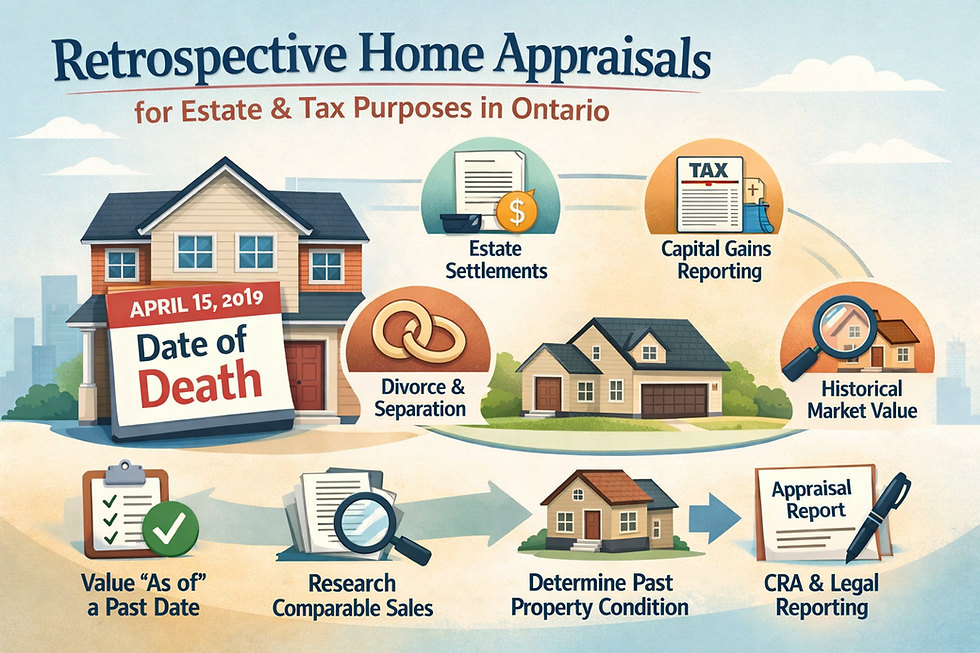Appraising Heritage Properties
- Laura Cade
- Oct 3, 2023
- 2 min read
Updated: Nov 28, 2023

Appraising heritage properties is a unique and specialized field within the real estate industry. Heritage properties are not just houses; they are slices of history, architectural treasures, and cultural gems. Appraising them requires a deep understanding of historical significance, architectural integrity, and a knack for assessing their market value. In this article, we will explore the intricacies of appraising heritage properties.
Understand the Heritage Property
Before diving into the appraisal process, it is essential to gain a profound understanding of the heritage property in question. This involves researching its historical background, architectural style, and any notable features that contribute to its heritage value. Take note of the property's age, previous owners, and any renovations or alterations that may have occurred over the years.
Heritage Designations
Many heritage properties are protected by local, state, or national heritage designations. These designations can significantly impact the property's value and potential for development. Be sure to research and understand the specific regulations governing the property you are appraising, as these will influence your appraisal.
Valuation Methods
When appraising heritage properties, appraisers typically use three primary valuation methods:
a. Sales Comparison Approach: This method involves comparing the heritage property to recently sold properties with similar characteristics. However, finding truly comparable properties can be challenging with heritage properties due to their uniqueness.
b. Income Approach: If the heritage property generates income, such as through rentals or tourism, the income approach may be applicable. It calculates the property's value based on its income potential.
c. Cost Approach: This approach assesses the value by estimating the cost to replace or reproduce the heritage property, accounting for depreciation. It is often used when there are no comparable sales.
Preservation Costs
Heritage properties often require significant maintenance and preservation efforts to maintain their historical and architectural integrity. Consider the cost of preserving and restoring the property when appraising its value. This can include expenses related to historical renovations, specialized materials, and skilled labor.
Market Demand
Understanding the current market demand for heritage properties in the area is crucial. Some buyers are drawn to heritage properties for their historical charm, while others may see them as a renovation project. Research the market trends and preferences to gauge how desirable heritage properties are to potential buyers.
Consult Heritage Experts
Appraising heritage properties may require input from heritage experts, architects, or historians who can provide insights into the property's historical significance and preservation needs. Their expertise can help you make a more accurate appraisal.
Document Everything
Maintain detailed records of your research, findings, and the appraisal process. This documentation is not only essential for your appraisal report but also for future reference and potential legal requirements.
Appraising heritage properties is a complex but rewarding endeavor. These properties hold historical, architectural, and cultural value that must be carefully considered when determining their market worth. By understanding the property's heritage significance, following proper valuation methods, considering preservation costs, and staying informed about market demand, you can provide an accurate appraisal for heritage property owners and potential buyers.
Heritage property appraisals require a unique blend of historical knowledge, architectural expertise, and real estate valuation skills. If you are looking to appraise or invest in heritage properties, consult with a qualified appraiser who specializes in this niche area to ensure a fair and accurate assessment of their value.




Comments